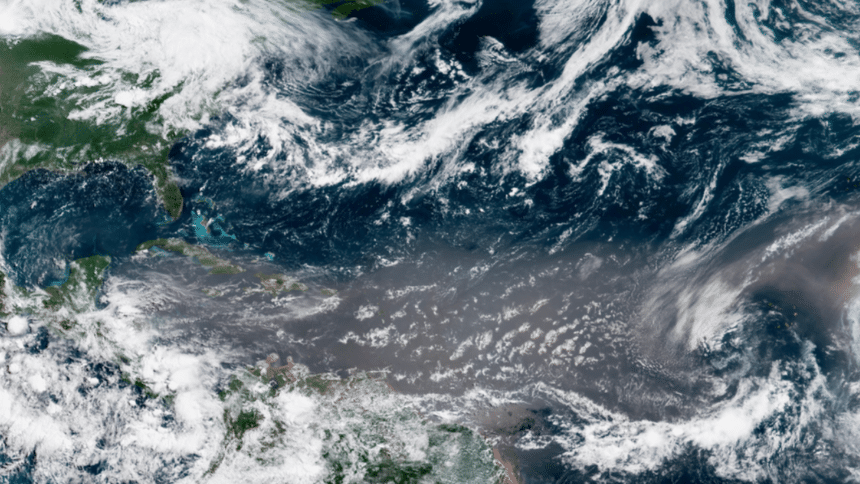As the Sahara dust plume travels across the Atlantic Ocean and moves into the U.S., doctors in Mississippi are urging residents to brace for the impacts it could have on their allergies.
The Mississippi Asthma & Allergy Clinic is advising residents to take precautions, especially people who already have respiratory conditions. The mass of dry, dusty air from the Sahara Desert in North Africa makes its way to the Southeast annually, but this year, it could cloak the region more than usual.
Beginning this week, Mississippians may notice hazy skies and increased allergy-like symptoms. Officials warn that while the Saharan plume can enhance sunsets by making them more vibrant and colorful, it can also bring with it fine particles that worsen air quality.
“While the dust can create striking sunsets, it can also pose serious problems for patients with asthma, allergies, or other respiratory concerns,” said Dr. Natalie Rudsenske, allergist and immunologist with the Mississippi Asthma & Allergy Clinic. “We want to help our patients prepare so they can manage symptoms before they escalate.”
The fine particles carried in the dust storm can irritate eyes, throat, and lungs, according to the medical officials. Patients with asthma or chronic respiratory conditions may experience increase coughing, wheezing, or shortness of breath. Even those without preexisting conditions might notice some sinus discomfort.
Mississippi Asthma & Allergy Clinic offered a handful of precautions people can take during the Sahara dust event: Limit outdoor activity during peak dust levels, keep windows closed and run indoor air filtration if available, continue taking prescribed allergy and asthma medications, and contact a doctor if symptoms become unmanageable.
“Awareness is the first step to prevention,” Rudsenske said. “We want our patients to feel informed and empowered, so they can breathe easier no matter the forecast.”








